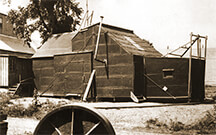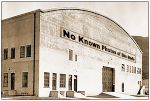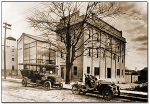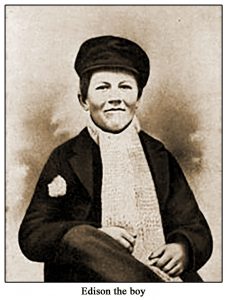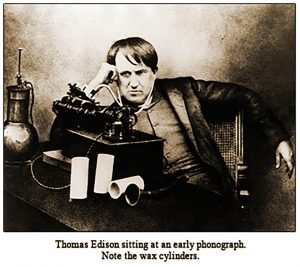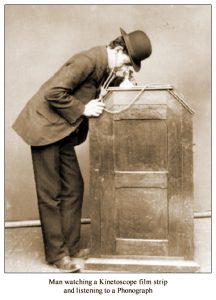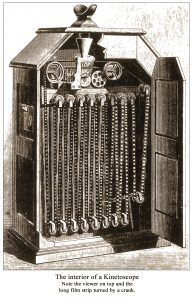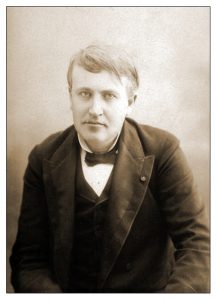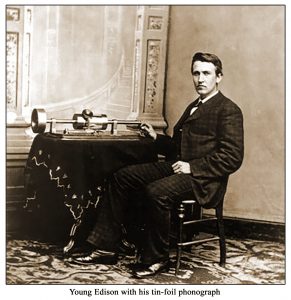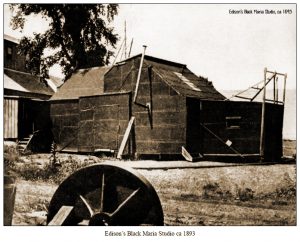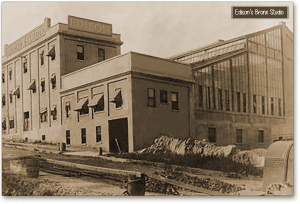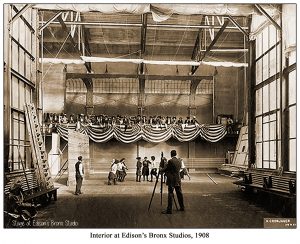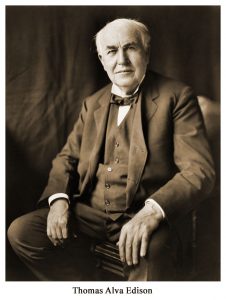Inventor
Thomas Edison is often regarded as America's preeminent inventor, and qualifies as America's very first Movie Mogul by virtue of the fact that he built our first movie studio in 1893, the Black Maria (pronounced muh-ry-uh) and was the first American to go into the movie production business. He invented America's first movie camera and projection device, the Kinetoscope (see the Edison Image Gallery). Edison is also credited as the inventor of the phonograph, direct current electricity, and the long lasting light bulb, among many others.
Studios
Edison' Black Maria from 1893 through 1901. In 1901 he move to a rooftop studio in Manhattan. In 1907 he built a large studio in the Bronx and operated there until the company closed in 1918.
Though he was the owner of the company, he contributed little to the atual movie making. He was owner in name, but hire others to do the actual management and operations.
Because he was not really a movie maker, but an inventor and researcher, he hired other to do his movie making. W.K.L. Dickson, the man who actually built the first cameras and Kinetoscopes, also doubled as Edison's cameraman. Frustrated by not getting credit for his contributions to Edison's efforts, and Edison's need for dominane, Dickson left Edison to partner in Edison't greates competitor, American Mutoscope and Biograph Company.
Controversies
Evidence exists that Edison was not the first inventor ofthe movie camera. The Lumiere Brother, in Paris claimed a camera before Edison built his first.
In December 1908, Edison led the formation of the Motion Picture Patents Company in an attempt to control the industry and shut out smaller producers. The "Edison Trust," as it was nicknamed, was formed for the purpose of eliminating competition by claiming patent rights on every camera and projection device made in America and Europe. It was made up of Edison and competing companies Biograph Company, Essanay Studios, Kalem Company, George Kleine Productions, Lubin Studios, Georges Méliès, Pathé, Selig Studios, Vitagraph of America, and distribution company General Film Company.
The Motion Picture Patents Co. and the General Film Co. were found guilty of antitrust violation in October 1915, and were dissolved, freeing film makers, distributors and exhibitors from the shackles of creating and patenting their own systems. The dissolution gave rise to the next generation of major movie makers.
Many have argued that Edison bought or stole much of the work he ultimately claimed patents on. He was regarded as a ruthless businessman and was not above stepping on others to get what he wanted (read ther story of Nichola Tesla).
Edison was also a well-known anti-Semite. Read more about it here.

